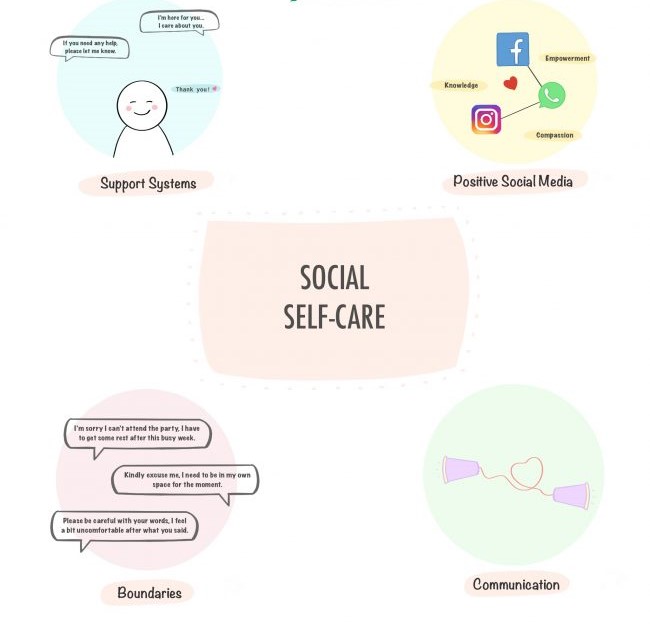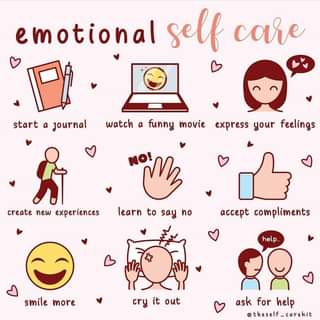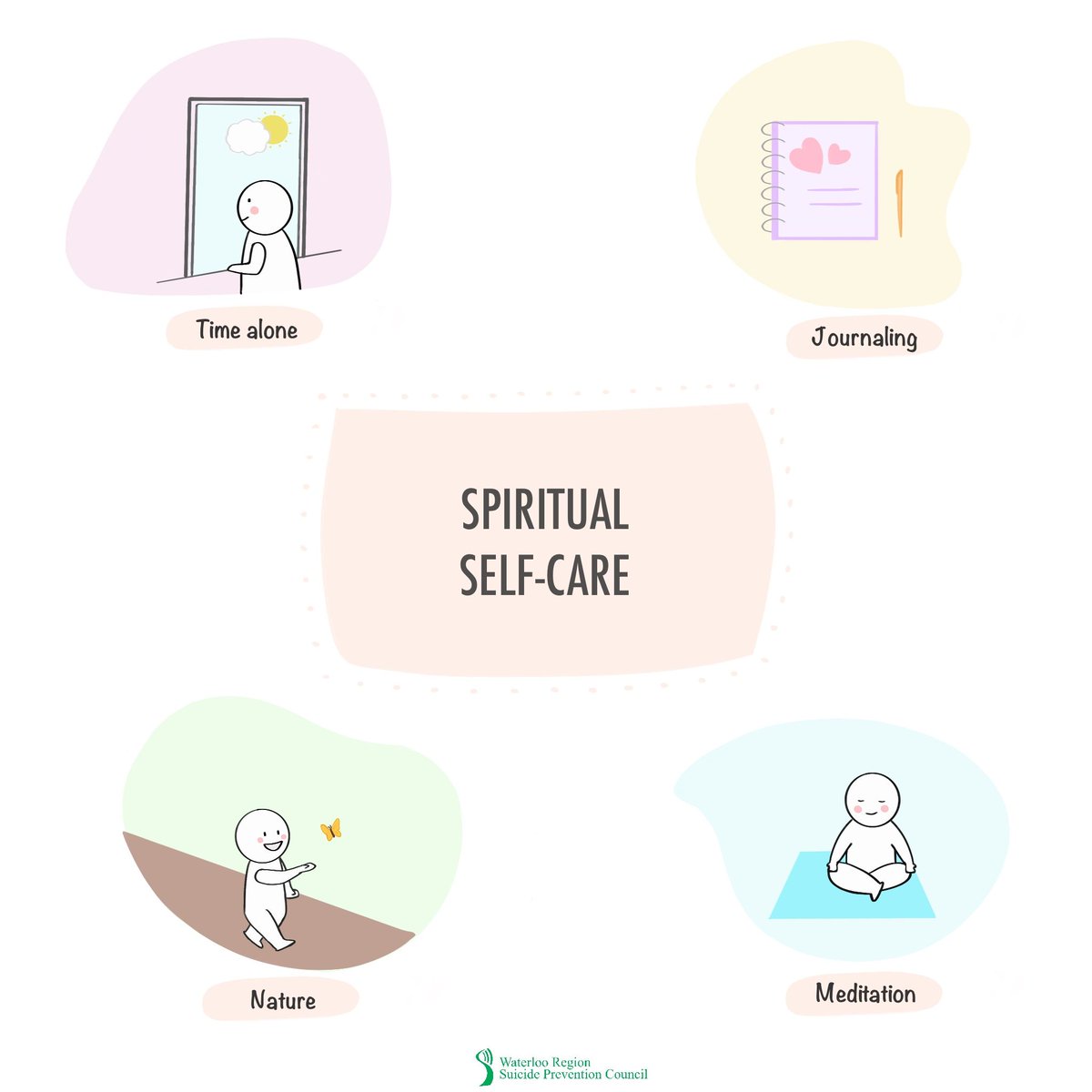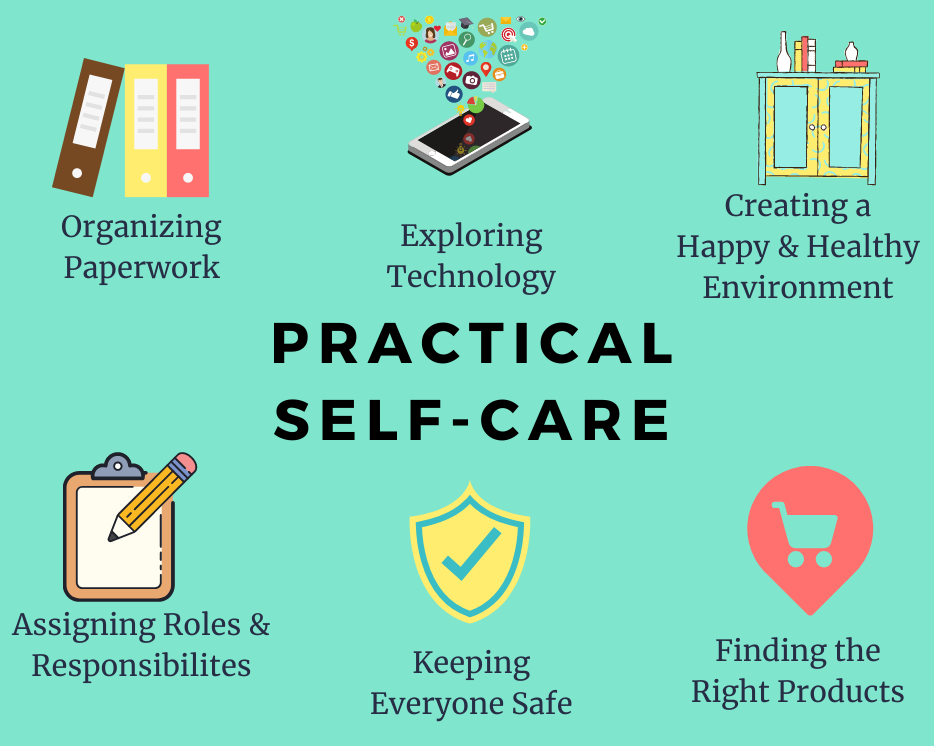1.PHYSICAL SELF CARE
Physical self-care includes behaviours such as nutrition and exercise that improve your physical health.Taking care of your physical health could entail eating more fruits and vegetables and staying hydrated.It's also crucial to keep active in a way that's enjoyable and fulfilling for you. Going for a stroll, hiking, playing a sport you enjoy, or attending a yoga class are all options.Always remember to strike a balance! While staying active is crucial, don't forget to rest if your body requires it.While caring for yourself physically is essential for everyone, the way you choose to engage in it will depend on your lifestyle.Taking your dog for a walk would be a terrific form of self-care if you've been sitting in an office chair all day. If you've been working in construction all day, you might want to end your shift with some restorative yoga.


2.MENTAL SELF CARE
Mental self-care entails actions that help you clear your mind and minimise stress. When life gets busy with work or school, taking care of your mental health can seem tough. You can reduce stress and increase your overall happiness by setting aside time each day to care for your mental health. Everyone's definition of mental health care is different. Reading a book, completing a craft, unplugging from technology, organising your home, taking a class, or going for a stroll are all simple methods to unwind each day. There is no right or wrong method to look after your mental health as long as it makes you feel good!
3.SOCIAL SELF CARE
Humans are social beings, which means we (yes, even introverts!) require regular social interaction to flourish. That's why prioritising social self-care—or activities that improve our interpersonal relationships—is so important.The difficulty is that we often cancel our plans and withdraw when our lives become chaotic and burdensome (and we might benefit from facetime with others). While we all need to say "no" from time to time, it's equally critical to schedule time for social connection.This has gotten even more obvious in recent years, as more institutions and offices have moved to the cloud.If you live alone or thrive on the energy of face-to-face interaction, you may be in need of some additional social self-care lately. Remember that networking with people is a necessity, not a luxury, even if you're busy with your life.


4.EMOTIONAL SELF CARE
Our ability to control our emotions and manage with tough sentiments when they come is critical to our overall happiness and quality of life. That's why emotional self-care is so important: the steps we do to connect with our emotions and process them in a healthy way. While everyone can benefit from devoting time and attention to this important aspect of self-care, those who have trouble controlling their emotions, are easily influenced by others' negative moods, and struggle to cope with feelings of shame, guilt, embarrassment, jealousy, anger, and/or feelings of unworthiness will find this particularly beneficial.You'll build healthier coping strategies and a greater feeling of satisfaction and well-being if you practise emotional self-care on a regular basis and learn to give yourself grace.
5.SPIRITUAL SELF CARE
Don't be fooled by the name of this one. Everyone, Christian, atheist, agnostic, or otherwise, can benefit from this type of self-care. Spiritual self-care refers to any activity that allows you to connect with and nourish your spirit. It's all about connecting with your inner spirit in this activity. This could include acts that honour a belief in a higher power for some (God, the universe or whatever guides you). Spiritual self-care is beneficial for everyone, but especially for those who want to feel more grounded in their daily lives. It can help people cope with grief and loss, medical or financial uncertainties, or any of life's other unpleasant twists and turns.While everyone's spiritual self-care is different, there are a few things you can do to make sure you're on the right track. If you want to include a daily spiritual practise into your life, set aside a tranquil and quiet space in your house. To ease into a great day, avoid using social media first thing in the morning and instead utilise soul-affirming mantras.


6.PRACTICAL SELF CARE
Practical self-care includes any steps you do to meet your basic needs and alleviate stress. Yes, even routine, day-to-day tasks. Consider how much better you feel after cleaning your room or sticking to a fitness schedule; these types of self-care are less glamorous than others, but they are not to be overlooked. They are tremendous sanity savers and help us feel more peaceful and in control in our hectic life. College students and young professionals, carers, stay-at-home parents, and anyone who tries to keep organised can benefit from practical self-care.Practical self-care can also be used to establish long-term, healthy behaviours. Limiting cell phone usage, committing to a healthy sleep routine, and regularly tidying your living environment are all examples of this.